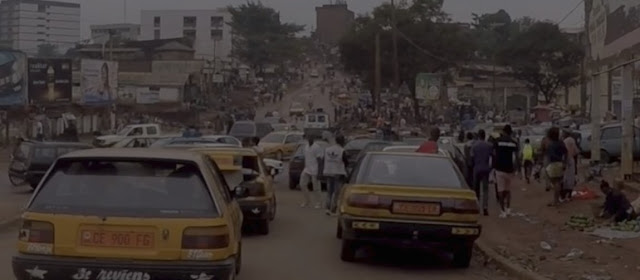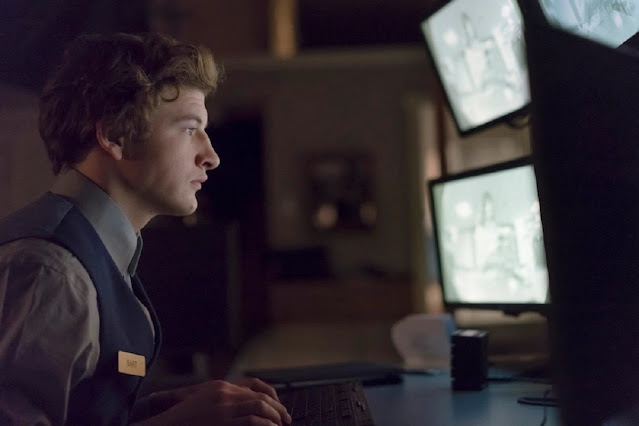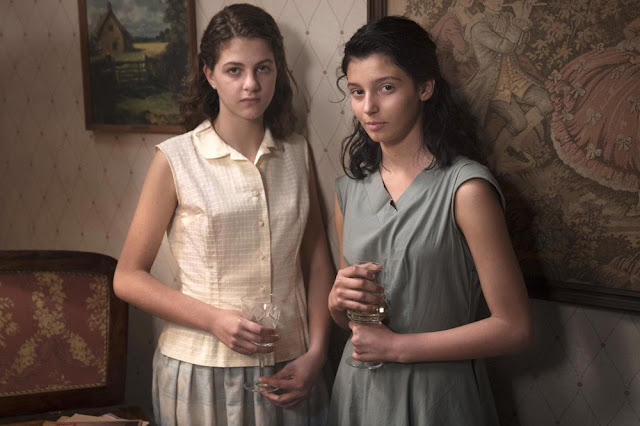Qué será del verano / What Will Summer Bring
(Español / English)
Ganadora del premio a Mejor Película de la Competencia Argentina del BAFICI 2021
Qué será del verano es de esas películas que busca impresionar con su dispositivo cinematográfico de pretendido documental realizado a partir de videos hallados en una cámara e interpelarnos sobre el género.
¿Es el objetivo o tesis de la película poner en cuestión los fundamentos de la credibilidad que todo documental merece? ¿Es discutir la tensión entre imágenes y texto, entre imágenes y su interpretación? ¿Es simplemente un falso documental?
Reseña:
La historia es la siguiente: el realizador viaja a Francia para pasar el invierno europeo con su novia que está realizando allí una maestría. Compra una cámara y resulta que ésta contiene videos pertenecientes al dueño anterior, llamado Charles Louvet. El director logra ponerse en contacto por mail con Charles y le pide permiso para usar ese material en una película. El francés no sólo accede, sino que empieza a mandarle mails explicativos sobre los videos.
La película de Ignacio Ceroi, entonces, está conformada por ese material, con una voz en off que lee las explicaciones de Louvet y algún material del viaje del propio Ceroi.
La pregunta que surge inmediatamente es qué hay de cierto en todo esto. Las imágenes de Louvet (que figura en los créditos como uno de los responsables de la fotografía) incluyen desde paseos en Montepellier con sus perros hasta imágenes de la guerra separatista de Camerún, adonde Charles fue para un trabajo temporario en la Embajada francesa.
¿Existe Louvet? ¿Todos los videos son de él o el director incluye otros que le son adjudicados? ¿Los textos en primera persona son del francés? ¿Se trata simplemente de un falso documental found footage? ¿Es el objetivo o tesis de la película poner en cuestión los fundamentos de la credibilidad que todo documental merece? ¿Es discutir la tensión entre imágenes y texto, entre imágenes y su interpretación?
Últimamente los documentales “serios” vienen forzando los límites de su contrato de credibilidad con el espectador, de su verosímil y de su puesta en escena, a veces con intervenciones muy discutibles que lo acercan al reality, poniendo en duda la espontaneidad o veracidad de lo que se muestra (como en El agente topo o Gauleguaychú: El país del carnaval). En otros casos, y en general desde el lado del humor, el falso documental que integra algunos materiales de archivo reales con situaciones inventadas y la confusión que esto genera funciona muy bien, como en el caso de La estrella roja.
Pero el principal peligro que acecha a algunos documentalistas es el narcisismo y el regodeo en el efecto que pueda crear el dispositivo cinematográfico que montan, en un cine pensado para festivales. En algunos casos, el resultado es brillante y potente, como en Esquirlas, con la tragedia de Rio Tercero vista desde los videos familiares de su directora.
Pero en Qué será del verano, las dudas que se van generando son tantas que alejan al espectador del relato en primera persona del supuesto protagonista (Louvet) y sus peripecias (la monotonía de la voz en off tampoco ayuda). Si subyace una intención humorística, francamente no la percibí, o sólo en unos pocos momentos. Lo que se ve termina siendo un relato montado y apócrifo que no sostiene el interés porque sus premisas boicotean su progreso dramático como historia.
Ceroi parece convencido, al parecer, de que lo interesante de su película deberían ser las dudas que genera, por un lado, y el interés objetivo de su material fílmico por el otro. Y le funcionó con el jurado del BAFICI 2021, que consagró a esta película como ganadora de la Competencia oficial argentina.
En suma: si el objetivo o tesis de la película es poner en cuestión los fundamentos de la credibilidad que un documental merece, el film termina fallando como relato: sus premisas terminan por minar gradualmente el interés del espectador por la historia que se pretende articular entre texto e imágenes. El espectador termina oscilando entre la incredulidad y la apatía, a pesar del interés objetivo que pueden generar algunas de esas imágenes y situaciones.
..................................................................................................................................................
Winner of the award for Best Film of the Argentine Competition of BAFICI 2021
What Will Summer Bring is one of those films that seeks to impress with its cinematographic device of an alleged documentary made from videos found on a camera.
Is the objective or thesis of the film to question the fundamentals of credibility that every documentary deserves? Is it discussing the tension between images and text, between images and their interpretation?
The story is as follows: the filmmaker travels to France to spend the European winter with his girlfriend, who is doing a master's degree there. He buys a camera and it turns out that it contains videos belonging to the previous owner, named Charles Louvet. The director manages to contact Charles by email and asks him for permission to use this material in a movie. The French not only agrees, but begins to send explanatory emails about the videos.
Ignacio Ceroi's film, then, is made up of this material, with a voice-over that reads Louvet's explanations and some material from Ceroi's own journey.
The question that immediately arises is what is true in all this. Images of Louvet (credited as one of the photographers) range from walks in Montepellier with his dogs to images from the Cameroonian separatist war, where Charles went for a temporary job at the French Embassy.
Does Louvet exist? Are all the videos his or does the director include others that are awarded to him? Are the first person texts from French? Is it simply a found footage mockumentary? Is the objective or thesis of the film to question the fundamentals of credibility that every documentary deserves? Is it discussing the tension between images and text, between images and their interpretation?
Lately, "serious" documentaries have been forcing the limits of their credibility contract with the viewer, their credibility and their staging, sometimes with highly debatable interventions that bring them closer to reality, casting doubt on the spontaneity or veracity of what that is shown (as in The Mole Agent or The Carnival). In other cases, and generally from the humor side, the mockumentary that integrates some real archive materials with invented situations and the confusion that this generates works very well, as in the case of The Red Star.
But the main danger that stalks some documentary filmmakers is narcissism and delight in the effect that the cinematographic device they assemble can create in a cinema designed for festivals. In some cases, the result is brilliant and powerful, as in Esquirlas, with the Rio Tercero tragedy seen from its director's family videos.
But in What Will Summer Bring , the doubts that are generated are so many that they distance the viewer from the first-person story of the supposed protagonist (Louvet) and his adventures (the monotony of the voice-over does not help either). If there is an underlying humorous intention, frankly I did not perceive it, or only in a few moments. What is seen ends up being a staged and apocryphal story that does not hold interest because its premises boycott its dramatic progress as history.
Ceroi seems convinced, apparently, that what is interesting about his film should be the doubts it generates, on the one hand, and the objective interest of his film material on the other. And it worked for him with the BAFICI 2021 jury, which consecrated this film as the winner of the Official Argentine Competition.
In short: if the objective or thesis of the film is to question the foundations of the credibility that a documentary deserves, the film ends up failing as a story: its premises gradually end up undermining the viewer's interest in the story that is intended to be articulated between text and images. The viewer ends up oscillating between disbelief and apathy, despite the objective interest that some of these images and situations can generate.




Comentarios
Publicar un comentario
Mensajes sujetos a moderación